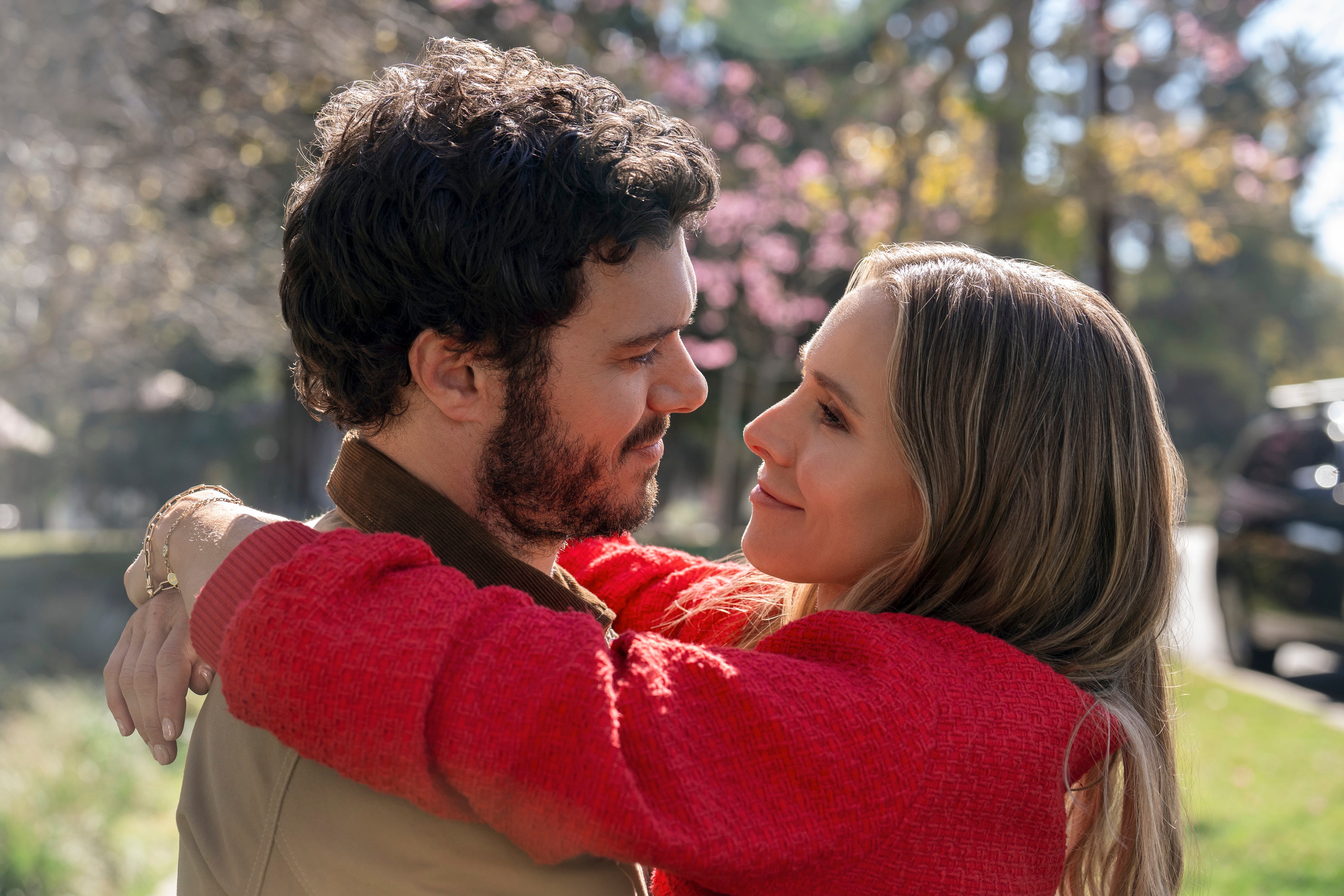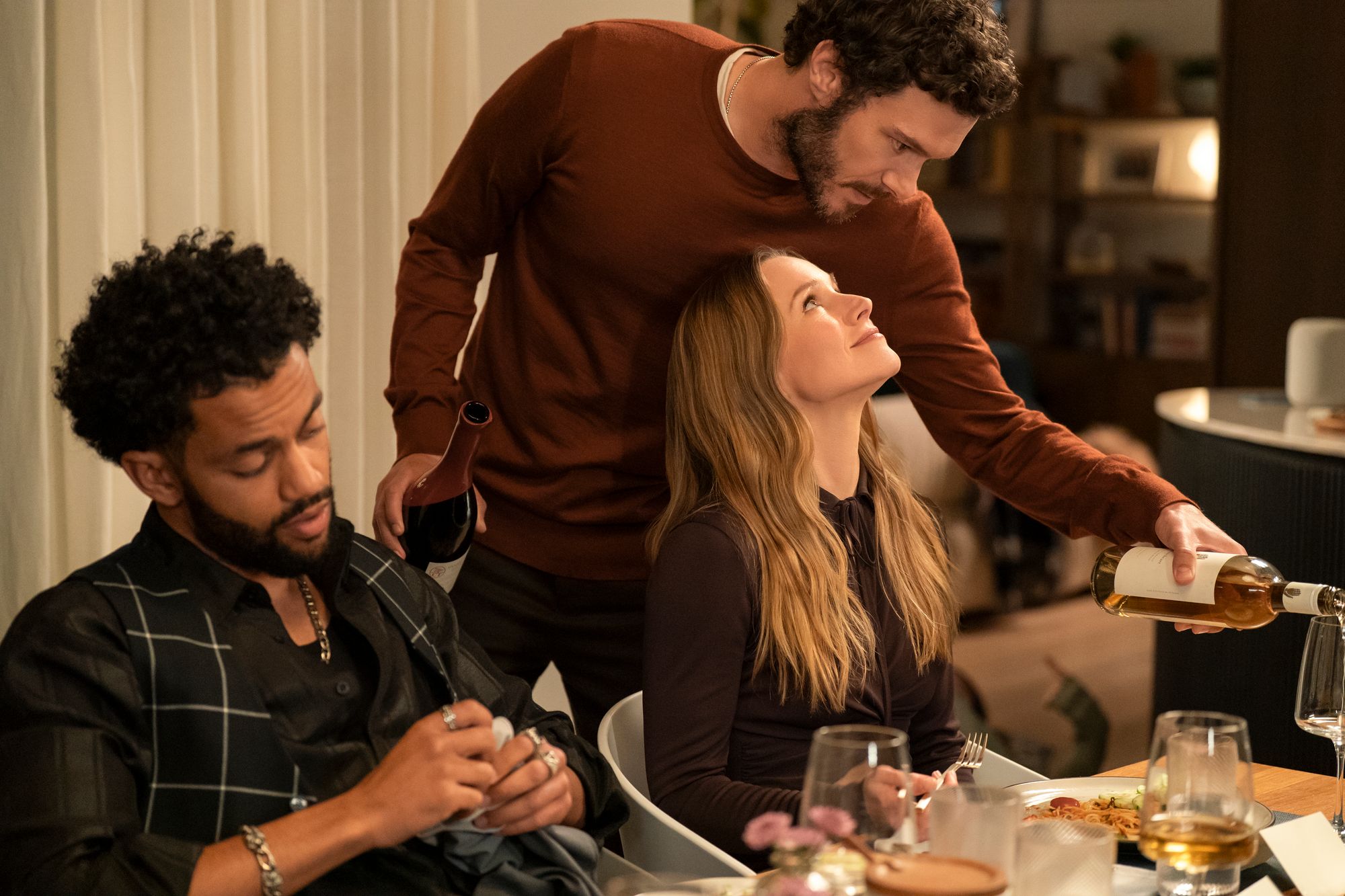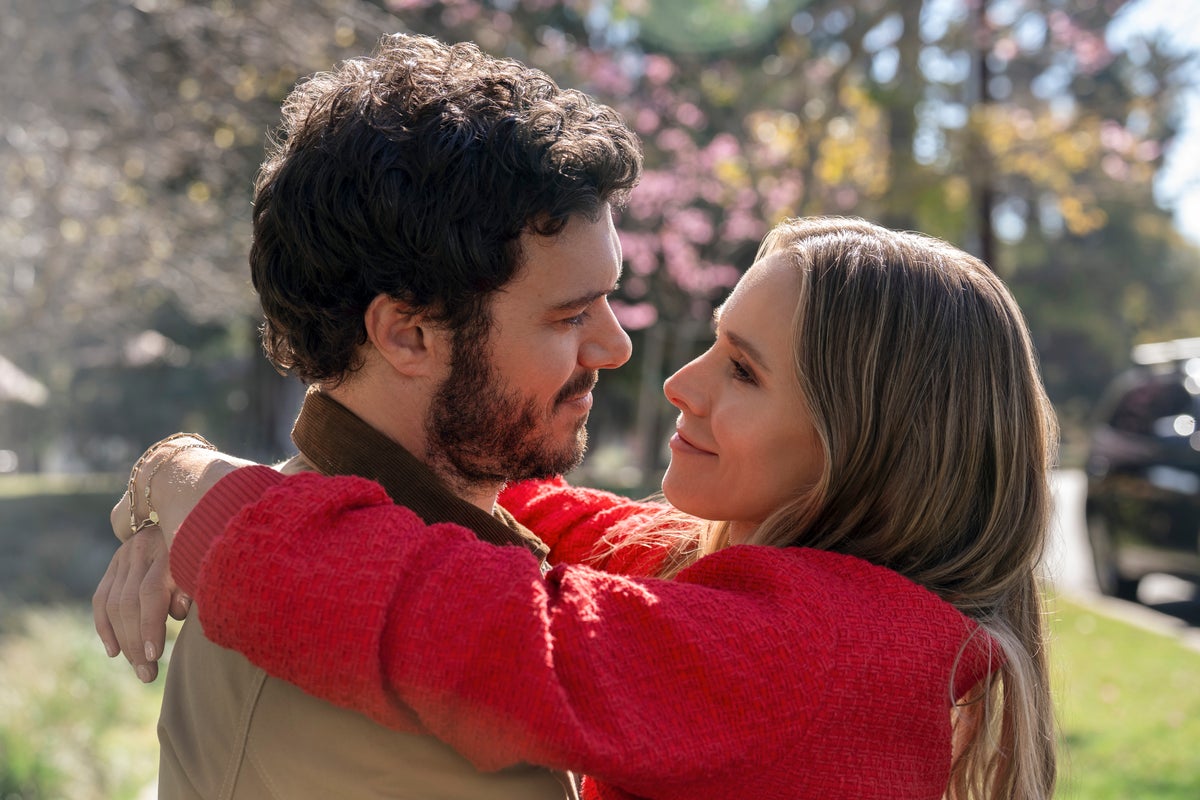Nobody Wants This”, Netflix’s wildly popular romcom series starring Adam Brody and Kristen Bell as a hot rabbi and sexy shiksa trying to make it work as a couple against all odds, is back. And thank goodness! As the days shorten and temperatures plummet, this tale of two deliciously charismatic protagonists and their offbeat array of family and friends is like a little ray of sunshine through autumn’s oncoming gloom. I inhaled it in a day.
Season one concluded with Noah (Brody) chasing after Joanne (Bell) and declaring that their love was more important than his potential promotion to head rabbi (a job he’d been working towards his entire career, but hey ho). Yeehaw! Love wins! Season two picks up with the couple in a gloriously fulfilling relationship, but the cracks quickly begin to show, particularly when it comes to light that their reunion was based on a fairly key misunderstanding: Noah believed they had “tabled” Joanne’s potential conversion to Judaism; Joanne believed it was “off the table”. Similar sounding but, as it turns out, very different interpretations of the same conversation.
It’s just one of the many interactions and plot points throughout the series that got me thinking about chemistry versus compatibility. Although Nobody Wants This, like so many romcoms before it, is selling the dream of a romance fuelled by instant attraction and passionate sparks, isn’t it really proof that building a serious relationship on these shakiest of foundations is a recipe for, well, disaster?
Yes, that kind of zinging connection is a heady, intoxicating cocktail. The feeling that someone immediately just gets you, that they somehow know your innermost parts from a mere glance across a crowded room, is one of the most powerful forces in the universe. But it’s a lie. They don’t know your innermost parts. And you don’t know theirs. It’s like paddling across sparkling, sun-tipped waves and thinking you really “know” the ocean – without having experienced the potential kraken that lies beneath…
All-consuming chemistry is dangerous precisely because it is so potent. It blinds us to someone’s deeper character: their core beliefs, goals, flaws, ideology and worldview. I’ve been there plenty of times myself – swept along on a tsunami of pheromones that made me see things that simply weren’t there. I remember telling a friend that the new man I was seeing was refreshingly “laid-back”. “He’s just a happy-go-lucky kind of guy!” I enthused, before discovering that he was, in truth, cripplingly anxious and insecure. My hypothesis, based on the sketchiest evidence – that because we laughed easily and were childlike and silly together, he was free-spirited and contented by nature – turned out to be utterly bogus. The shock felt even more pronounced when, six months in, I found out that a different paramour thought stealing from the supermarket self-checkout was totally fine because “food is too expensive”. Chemistry and knowing someone are two completely different things.

Noah and Joanne are perhaps the perfect example. They fall in love over witty one-liners and dextrous verbal sparring matches that would naturally lead the casual observer to believe their relationship was written in the stars. But delve a little further underneath the surface, and there are some glaring incompatibilities. It’s not just the religious and cultural differences – though these are tricky enough to circumvent. There are frequently other crucial chasms between their morals and values on display.
After witnessing a car speed dangerously fast around a carpark, Joanne’s sister Morgan (magnificently portrayed by Justine Lupe) later sees it and keys it along one side, spurred on by Joanne’s “do your thing, girl” encouragement. Sweet, law-abiding Noah is shocked by this vigilante approach to “street justice”. “I feel like you’re judging me – and don’t say that you’re not,” she says afterwards. “I am judging you,” he responds.
Once that initial madness wears off – as is inevitable over time – what are you left with?
It might feel like a small thing; a funny incident that shows up their hilariously “quirky” differences. But stuff like this is hugely indicative of the kind of person you are – your deep-held ethics and attitudes to rules, and how you engage with the social contract that codifies our behaviour. At another point, Joanne considers cutting a baby’s hair at her naming ceremony as revenge on the mother for a perceived slight committed some 25 years prior. Noah, again, cannot get his head around this response, diametrically opposed as it is to his own conduct. He is governed by an alien set of principles that remain totally at odds with those of his partner.
Science backs up the notion that chemistry can act as a set of blinkers, preventing us from seeing major underlying issues at the beginning of a relationship. Falling for someone has a massive impact on our brain, flooding it with the reward chemical dopamine – thus triggering a feeling similar to that stoked by cocaine or alcohol – but also the stress hormone cortisol. Meanwhile, feel-good serotonin is depleted. This is what induces the “intrusive, maddeningly preoccupying thoughts, hopes [and] terrors” of early infatuation, according to Richard Schwartz, a Harvard Medical School professor and couples therapist who has studied the effects of love on the brain.
Something else happens on top of this “can’t get enough” chemical party: the neural pathway responsible for negative emotions, such as fear and social judgment, is temporarily deactivated. It means that the bit of our brain responsible for making critical assessments of other people, including those with whom we’re romantically involved, shuts down. “That’s the neural basis for the ancient wisdom ‘love is blind’,” says Schwartz. But once that initial madness wears off – as is inevitable over time – what are you left with? Potentially someone whose entire outlook on life is different to your own, whose building blocks fundamentally are made of different stuff.

It’s all too easy to see why the fallacy of chemistry beating compatibility is so attractive. After all, who wouldn’t want to scrap the preamble, skip the prelude and initiate the cheat code to fast-forward their way to true and lasting love? In a world where instant gratification is the only kind we’re used to having, who can be bothered to be patient and take their time, gradually peeling back the infinite layers that make up a person until you really know them down to their bones?
But there is no shortcut when it comes to a long-term partnership. As much as, ironically, everybody probably wants the kind of love story portrayed in Nobody Wants This, I’m finally starting to see the appeal of the slow-burn over the whirlwind romance.
‘Nobody Wants This’ is streaming on Netflix





